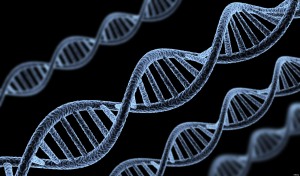So, what is the cause of these psychiatric disorders? Life would be much easier for millions of people if there were a clear-cut, single cause (and cure) of eating disorders. Unfortunately, this is not the case. Eating disorder researchers are still learning about the underlying causes of these physically and emotionally damaging disorders, but many contributing factors have been identified.
Eating disorders may initially seem to be just about food and weight, but they often have a lot to do with a person’s emotional state. Many who suffer from an eating disorder use dieting, binging, and purging as a way to cope with painful emotions and as a way to try to gain control in overwhelming situations. It is important to remember that eating disorder are not solely about food when trying to determine what causes an eating disorder.
The first factors that contribute to eating disorders are psychological factors. This includes low self-esteem and feelings of inadequacy or lack of control in life. Also, other psychological issues such as depression, anxiety, anger, stress, and loneliness contribute to the likeliness of an eating disorder to arise.
Next, interpersonal factors can contribute to an eating disorder. Relationship troubles (romantic, family, friends) can be a trigger to the onset of an eating disorder. Difficultly expressing feelings or emotions can be stressful and become a cause. Also, a history of being ridiculed based on size or weight can ruin a person’s self-image and eventually lead them to harm their bodies. Bullying was a factor that contributed heavily to the development of an eating disorder in one of my good friends. Her story can be heard in my audio essay. Finally, a history of physical or sexual abuse can be a factor contributing to an eating disorder.
There are also biological factors that contribute to the cause of an eating disorder. These factors are still being researched, but evidence shows that eating disorders could arise due to biochemical or biological causes. Research has found that in some individuals with eating disorders, certain chemicals in the brain that control, hunger, appetite, and digestion have been found to be unbalanced. The exact meanings and implications of the unbalanced chemicals is still being researched. Research has also shown that eating disorders run in families. Current research indicates that there are significant genetic contributions to eating disorders.
Finally, there are social factors contributing to eating disorders. Culture’s emphasis on thinness and muscularity can cause pressure to take drastic measures to obtain the “perfect body”. Also, narrow definitions of beauty that only include women and men of certain weights and body shapes are dangerous. Cultural norms that place value on a person’s physical appearance rather than their inner qualities create an environment where people only feel valued when they look a certain way. Lastly, stress from racial, ethnic, size/weight-realted, and other forms of prejudice and discrimination can lead to the onset of an eating disorder.
I think it’s necessary to focus further on the social factors of eating disorders. Unlike biological, psychological, and even interpersonal factors to a degree, we (as a society) can control these social factors. This is just another reason why our society’s beauty ideals are dangerous and need to change.
Image sources:
http://www.examiner.com/article/love-vs-low-self-esteem
http://www.huffingtonpost.com/2013/04/14/human-gene-supreme-court_n_3081399.html




